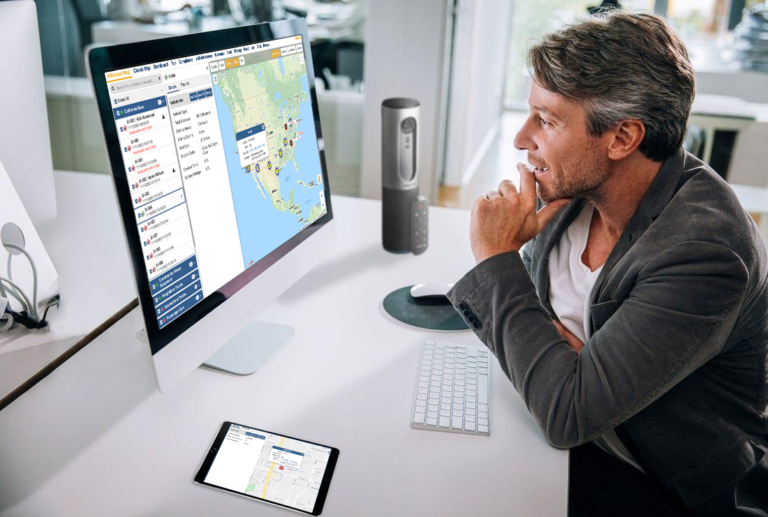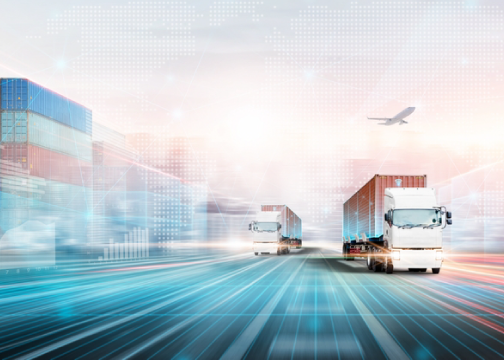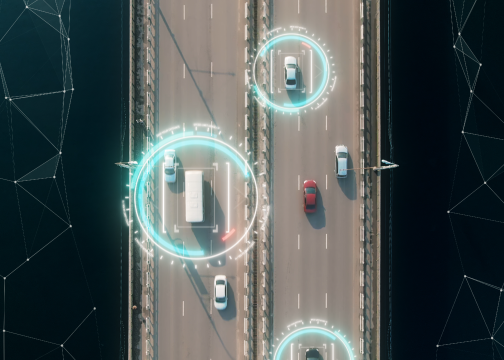Fleet automation: The future is now
According to a recent Washington Post report, COVID-19 spurred many companies to adopt innovations they would have otherwise put off. Because businesses had to work with fewer in-office employees and scarce resources, they quickly learned out how to automate manual processes.
McKinsey & Company confirms the Post’s analysis. According to their analysis, “Companies shifted rapidly to online channels, automated production tasks, increased operational efficiency, and sped up decision making and innovation of operating models.” They predict that these businesses will contribute to skyrocketing productivity rates in 2021 and 2022.
New levels of innovation, increased automation, and improving productivity will separate tomorrow’s winners and losers. Patrick Harker, president of the Federal Reserve Bank of Philadelphia, recently wrote, “During the pandemic, firms became more productive and learned to do more with less.” And the firms that didn’t figure out how to increase productivity? They’re going to find themselves on a wildly uneven playing field where they quickly fall behind.
The fact that some businesses are starting to surpass their peers was confirmed by a McKinsey & Company survey that found that an elite set of “respondents coming from a variety of industries attribute 20 percent or more of their organizations’ earnings before interest and taxes (EBIT) to AI… This could create a wider divide between AI leaders and the majority of companies still struggling to capitalize on the technology.”
What does this mean for fleets? There are three main takeaways:
1. What IoT promised, automation delivers
IoT promised to make fleets more productive by providing unprecedented operational visibility. But for years, the only way fleets could get those benefits was to pour time and money into intensive data management.
Today, that has changed. Automation manages IoT’s constant stream of data so that fleets don’t have to. By automating away the hard part, it has delivered on IoT’s original promise.
Automation streamlines both day-to-day and long-term workflows, mapping every second of every organizational process. Now that IoT’s full potential has finally been realized, automated fleets will work faster, cheaper, and more efficiently.
2. Automation and AI impact every job
Automation will impact every job fleets do. That means every shipment, every delivery, every customer interaction. And it will also automate every job your employees have. That means every driver, every mechanic, every manager, and every department.
For years, certain aspects of fleet management have been automated. ELDs have automated parts of HOS compliance. DTCs have automated parts of engine maintenance. But now, everything from customer support to payroll to long-term strategic planning can be, at least in part, farmed out to automation.
The businesses that add automation to their fleets will find that they do every job faster, more efficiently, and with a smaller team. The businesses that wait will find themselves losing customers who switch to cheaper and better performing competitors.
3. Only FleetUp supports comprehensive automation
Most fleet software providers offer limited automation solutions. They’ll impact either maintenance or accounting, either drivers or customer support. But the rest of the team will still be slowed by antiquated processes.
Comprehensive automation includes four pillars: Automated data collection, automated data analysis, automated management tasks, and automated process optimization. Each of these pillars supports the others – if one is missing, none of the rest are as strong. And FleetUp is the only company that provides all four.
The future of fleet management
Automation will allow fleets to do more work with fewer resources and smaller staffs. Companies that automate now will be stunned how quickly their fleets ramp up to warp speed.
Every technological revolution changes the way business is done. Automation is no different. According to the Aspen Institute:
Emerging technologies… have the potential to automate many tasks currently performed by workers. Historically, automation has been an important ingredient driving economic growth and progress… Similar to past innovations, these new technologies offer the potential to help us meet human needs while supporting new jobs and industries never before imagined.
History is happening today. Don’t let it pass you by.
|








